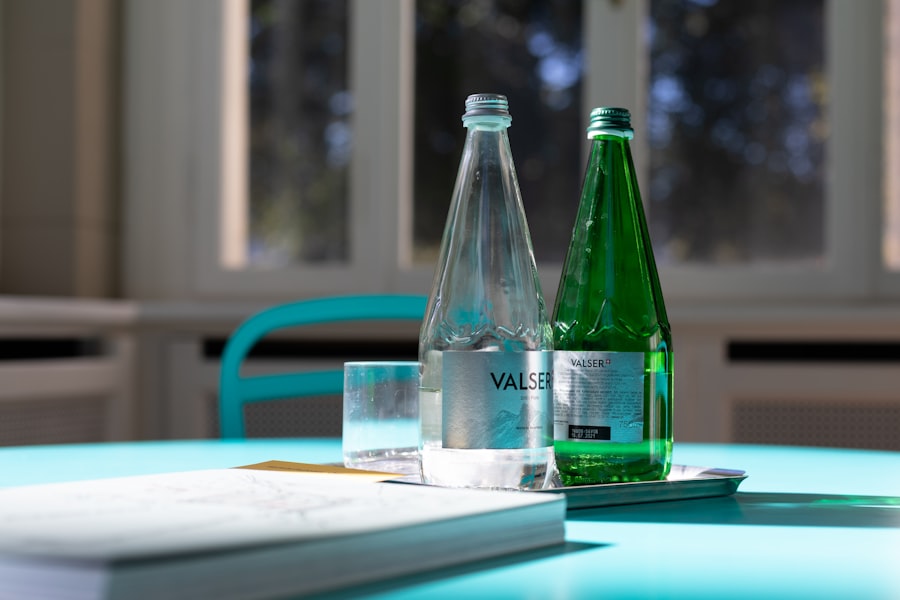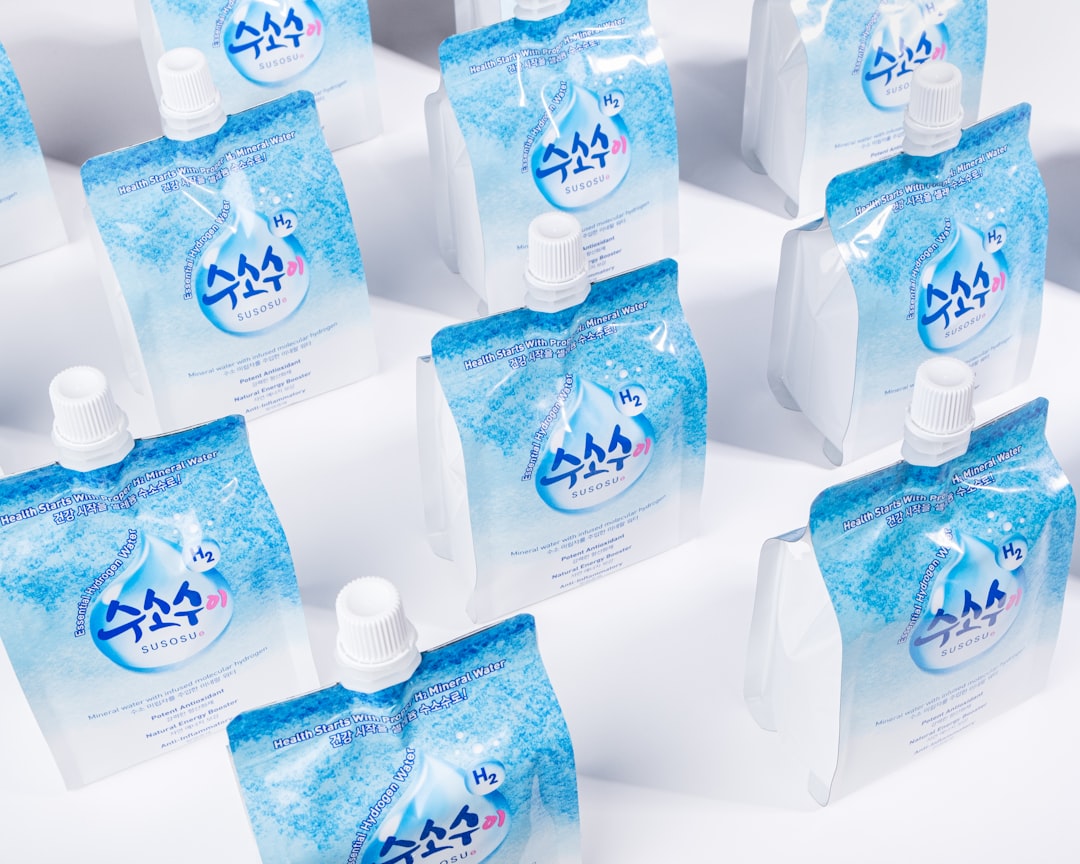The environmental consequences of bottled water production and consumption are profound and far-reaching. The process begins with the extraction of water from natural sources, which can lead to the depletion of local aquifers and disrupt ecosystems. In many cases, companies draw water from areas already facing water scarcity, exacerbating the challenges faced by local communities.
Furthermore, the production of plastic bottles requires significant amounts of fossil fuels, contributing to greenhouse gas emissions and climate change. The transportation of bottled water, often across long distances, adds another layer of environmental strain, as it involves burning fossil fuels and increasing carbon footprints. Once consumed, the fate of plastic bottles poses another significant environmental challenge.
A staggering amount of plastic waste ends up in landfills or, worse, in oceans and waterways, where it can take hundreds of years to decompose. Marine life is particularly vulnerable to this pollution, as animals can ingest plastic debris or become entangled in it. Efforts to recycle plastic bottles have been insufficient, with a large percentage ending up in environments where they cause harm.
The environmental impact of bottled water is not just a matter of waste; it encompasses a broader narrative about resource management and sustainability that society must confront.
Key Takeaways
- Bottled water has significant environmental impacts, including plastic waste and resource consumption.
- The quality of bottled water varies and is not always superior to tap water.
- Bottled water is considerably more expensive than tap water.
- Health concerns include potential chemical leaching from plastic bottles.
- Alternatives like reusable bottles and improved tap water infrastructure offer sustainable solutions.
The Quality of Bottled Water
The quality of bottled water is often touted as superior to tap water, but this claim warrants scrutiny. Many consumers believe that bottled water undergoes more rigorous testing and purification processes than municipal water supplies. However, studies have shown that bottled water is not necessarily cleaner or safer than tap water.
In fact, some bottled waters are sourced from municipal supplies and simply repackaged, raising questions about the actual quality difference. Additionally, the lack of transparency in the bottled water industry can leave consumers in the dark about the source and treatment of the water they are purchasing. Moreover, the presence of contaminants in bottled water has been documented in various studies.
While many brands adhere to safety standards, instances of bacterial contamination and chemical pollutants have been reported. The perception that bottled water is inherently pure can lead to complacency regarding its safety. Consumers may overlook the fact that tap water is often subject to stricter regulations and regular testing by local authorities.
As such, the quality debate surrounding bottled water is complex and multifaceted, challenging the notion that it is always the superior choice.
The Cost of Bottled Water

The financial implications of bottled water consumption are significant and often overlooked. On a per-gallon basis, bottled water is substantially more expensive than tap water.
This disparity raises questions about consumer choices and the value placed on convenience over cost-effectiveness. For many households, especially those on tight budgets, the cumulative expense of purchasing bottled water can be considerable. Additionally, the economic impact extends beyond individual consumers to broader societal implications.
The bottled water industry generates billions in revenue annually, yet this wealth often does not translate into local benefits for communities where water is sourced. Instead, profits frequently flow to large corporations that prioritize shareholder returns over sustainable practices or community welfare. This economic dynamic highlights a troubling aspect of bottled water consumption: while it may offer convenience and perceived quality, it often comes at a steep financial cost both for individuals and for society as a whole.
The Health Concerns of Bottled Water
| Health Concern | Description | Potential Impact | Scientific Findings |
|---|---|---|---|
| Microplastic Contamination | Presence of tiny plastic particles in bottled water | Possible ingestion leading to unknown long-term health effects | Studies found microplastics in over 90% of bottled water samples |
| Chemical Leaching | Release of chemicals like BPA and phthalates from plastic bottles | Endocrine disruption, hormonal imbalance | Some bottles leach chemicals especially when exposed to heat |
| Bacterial Contamination | Growth of bacteria due to improper storage or bottling | Gastrointestinal illnesses, infections | Occasional detection of bacteria in poorly stored bottled water |
| Fluoride Levels | Variable fluoride content in bottled water | Dental fluorosis or insufficient fluoride for dental health | Fluoride levels vary widely; some bottled water lacks fluoride |
| Mineral Content | Differences in essential minerals like calcium and magnesium | Impact on hydration and nutrient intake | Mineral content varies by brand and source |
Health concerns surrounding bottled water have gained increasing attention in recent years. One major issue is the potential leaching of harmful chemicals from plastic bottles into the water they contain. Chemicals such as bisphenol A (BPA) and phthalates have been linked to various health problems, including hormonal disruptions and increased cancer risk.
While many manufacturers have moved towards BPA-free plastics, concerns remain about other chemicals that may still be present in bottle materials. This raises important questions about the long-term health implications of consuming bottled water regularly. Furthermore, the misconception that bottled water is always a healthier choice can lead to poor hydration habits.
Some individuals may opt for sugary beverages or energy drinks instead of tap water, believing that bottled options are inherently better for them. This shift can contribute to rising rates of obesity and related health issues. It is essential for consumers to be informed about their hydration choices and recognize that tap water is often a safe and healthy alternative to bottled options.
The Regulation of Bottled Water
The regulation of bottled water varies significantly from country to country and even within regions of the same nation. In the United States, for example, the Food and Drug Administration (FDA) oversees bottled water as a food product, while the Environmental Protection Agency (EPA) regulates public drinking water supplies. This dual oversight can create inconsistencies in safety standards and testing protocols.
While bottled water companies are required to adhere to certain safety guidelines, these regulations may not be as stringent as those imposed on municipal water systems. Moreover, the lack of comprehensive labeling requirements can leave consumers unaware of important information regarding their bottled water choices. Unlike tap water, which must disclose its source and any contaminants found during testing, bottled water labels often provide minimal information about its origin or treatment processes.
This lack of transparency can undermine consumer trust and complicate efforts to make informed decisions about hydration options.
The Marketing of Bottled Water

The marketing strategies employed by bottled water companies play a crucial role in shaping consumer perceptions and driving demand. Through clever branding and advertising campaigns, these companies often position their products as symbols of health, luxury, or environmental consciousness. Terms like “spring,” “artesian,” or “purified” are frequently used to evoke images of pristine sources and superior quality.
This marketing approach capitalizes on consumers’ desires for convenience and perceived health benefits while often obscuring the reality behind the product. Additionally, the rise of social media has amplified the reach of bottled water marketing campaigns. Influencers and celebrities frequently endorse specific brands, further entrenching the idea that bottled water is a desirable lifestyle choice.
This trend has contributed to a culture where convenience trumps sustainability, leading many consumers to overlook the environmental consequences associated with their choices. As marketing continues to evolve, it remains essential for consumers to critically evaluate the messages they receive about bottled water.
The Alternatives to Bottled Water
As awareness grows regarding the environmental impact and health concerns associated with bottled water, many individuals are seeking alternatives that align with more sustainable practices. One popular option is reusable water bottles made from stainless steel or glass. These containers not only reduce plastic waste but also encourage individuals to drink more tap water or filtered options at home or on-the-go.
Many cities have implemented initiatives to improve public drinking fountains and access to clean tap water, making it easier for people to refill their reusable bottles. Another alternative gaining traction is home filtration systems that provide clean drinking water without the need for single-use plastic bottles. These systems can range from simple pitcher filters to more advanced reverse osmosis units that remove contaminants effectively.
By investing in such solutions, consumers can enjoy high-quality drinking water while minimizing their environmental footprint. As more people embrace these alternatives, there is hope for a shift away from reliance on bottled water toward more sustainable hydration practices.
The Bottled Water Industry
The bottled water industry has experienced remarkable growth over the past few decades, becoming a multi-billion-dollar global market. This expansion has been driven by various factors, including increased consumer demand for convenient hydration options and growing health consciousness among individuals seeking alternatives to sugary beverages.
However, this rapid growth has not come without challenges. Increasing scrutiny over environmental impacts and health concerns has prompted some companies to reevaluate their practices and adopt more sustainable approaches. Initiatives such as using recycled materials for packaging or investing in community-based water projects are becoming more common among industry leaders seeking to improve their public image.
As consumer preferences continue to evolve towards sustainability, the industry may face pressure to adapt further or risk losing market share.
The Packaging of Bottled Water
Packaging plays a pivotal role in the bottled water industry, influencing both consumer choices and environmental outcomes. Most bottled waters are packaged in single-use plastic bottles that contribute significantly to global plastic waste issues. While some companies have begun exploring alternative materials such as biodegradable plastics or glass containers, these options are not yet widespread across the industry.
The reliance on traditional plastic packaging raises concerns about pollution and resource depletion associated with petroleum-based products. Moreover, packaging design often emphasizes convenience over sustainability, with many bottles designed for one-time use rather than recycling or reuse. This design philosophy perpetuates a throwaway culture that undermines efforts to reduce plastic waste effectively.
As awareness grows regarding these issues, there is an increasing call for innovative packaging solutions that prioritize both functionality and environmental responsibility.
The Social Impact of Bottled Water
The social implications of bottled water extend beyond individual consumer choices; they encompass broader issues related to access and equity in communities worldwide. In many regions where bottled water is marketed heavily, access to clean drinking water remains a significant challenge for local populations. The commodification of a basic human need raises ethical questions about who benefits from natural resources and how those resources are managed.
Furthermore, reliance on bottled water can create disparities between those who can afford it and those who cannot access safe drinking options at all. In some cases, communities facing economic hardships may find themselves forced into purchasing expensive bottled options due to inadequate infrastructure or contamination issues affecting local tap supplies. This dynamic highlights the need for comprehensive solutions that address both access to clean drinking water and sustainable practices within the industry.
The Future of Bottled Water
Looking ahead, the future of bottled water will likely be shaped by evolving consumer preferences and increasing awareness surrounding environmental sustainability and health concerns. As more individuals seek alternatives that align with their values—such as reusable containers or filtered tap options—the demand for traditional bottled products may decline. Companies within the industry will need to adapt by innovating their practices and exploring sustainable packaging solutions if they wish to remain relevant in an increasingly eco-conscious market.
Additionally, regulatory frameworks may evolve in response to growing public concern over plastic waste and health risks associated with certain materials used in packaging. Stricter regulations could push companies toward adopting more responsible sourcing practices while promoting transparency regarding product origins and treatment processes. Ultimately, the future landscape of bottled water will depend on how well stakeholders—from consumers to corporations—collaborate in addressing pressing environmental challenges while ensuring equitable access to safe drinking options for all communities.
The truth about bottled water is often surprising, revealing the environmental impact and health concerns associated with its consumption. For a deeper understanding of related topics, you can explore an insightful article on this subject at Hey Did You Know This. This resource provides valuable information that complements the discussion on bottled water and its implications for our health and the planet.
WATCH THIS! The $400 Billion Water Lie: Why Bottled Water Is a Scam
FAQs
What is bottled water?
Bottled water is drinking water packaged in plastic or glass bottles. It can come from various sources, including springs, wells, or municipal supplies, and is often marketed as a convenient and pure alternative to tap water.
Is bottled water safer than tap water?
In many developed countries, tap water is strictly regulated and generally safe to drink. Bottled water is also regulated but may not necessarily be safer. The safety depends on the source, treatment, and storage conditions of the water.
What are the environmental impacts of bottled water?
Bottled water production and disposal contribute to environmental issues such as plastic pollution, resource depletion, and carbon emissions. Plastic bottles often end up in landfills or oceans, where they can take hundreds of years to decompose.
How does the cost of bottled water compare to tap water?
Bottled water is significantly more expensive than tap water. On average, bottled water can cost hundreds to thousands of times more per gallon than tap water.
Are there health concerns associated with bottled water?
While bottled water is generally safe, concerns include potential chemical leaching from plastic bottles, especially when exposed to heat or stored for long periods. Additionally, some bottled waters may lack fluoride, which is beneficial for dental health.
What regulations govern bottled water quality?
In the United States, the Food and Drug Administration (FDA) regulates bottled water, while the Environmental Protection Agency (EPA) regulates tap water. Both agencies set standards for contaminants and labeling, but the regulations differ in scope and enforcement.
Can bottled water be recycled?
Yes, most plastic bottles used for bottled water are recyclable. However, recycling rates vary by region, and not all bottles are recycled properly, contributing to environmental pollution.
Is bottled water better tasting than tap water?
Taste is subjective and can vary based on the source and treatment of the water. Some people prefer bottled water for its taste, while others find tap water equally acceptable or better, especially when tap water is well-treated.
What alternatives exist to reduce bottled water consumption?
Alternatives include using reusable water bottles, installing home water filtration systems, and drinking tap water where it is safe. These options reduce plastic waste and are more cost-effective.
